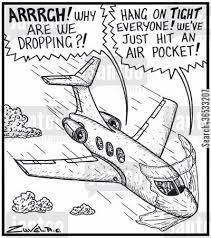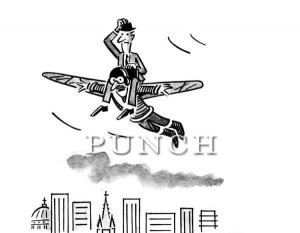June 12th 2014? Didn’t know what happened that day. Did Air Asia start its operations in India on that day? Good for them. What’s in it for us? Well of course the ticket prices were insanely low. But that happened only for a while. It was just a cheap market penetration strategy. If you go to the Air Asia website now to check the rates, they are similar to that of Go Air, Indigo or Spicejet.
[caption id="attachment_45885" align="alignnone" width="300"] Image source: http://usa.chinadaily.com.cn/business/2011-05/20/content_12549076.htm[/caption]
Image source: http://usa.chinadaily.com.cn/business/2011-05/20/content_12549076.htm[/caption]
After reading the “whole” article we were actually shocked to find such a loyal set of supporters of our thought process -- even they think that the Government has to take many steps and the introduction of the new airlines are not just going to solve the problems of the aviation sector
As we hear from Tony Fernandes, Founder, AirAsia India, there is plenty of the “pie” that can be catered to by the existing and new airline operators. However, he expresses caution about a lot of government pending actions which highlights the dependency of this sector on administrative regulations.
The opposition has mentioned a few problems like:
1. Increase in fuel uptake at an airport due to lower cost - well yes of course, and the price of fuel, that will add to the problems.
2. Air traffic increase due to lower ticket prices- we have been dealing with this problem for quite a while, I wonder what will happen when the number of aircrafts will increase.
3. Incentives for more airlines to enter the market, thus making the industry more competitive - see from a customer point of view it’s not going to matter. All they want is to travel at the lowest price and yes indeed to survive the competition they have to lower the price.
4. Increased employment & revenues - it really will help in increasing employment & revenues but let’s keep our fingers crossed coz we never know when something like 'Kingfisher failure' can happen.
After seeing these lines I had to go back and check my mail. I mean, I didn't know whether we were against the motion or they were because if the new airlines are dependent on government norms, the old airlines are also dependent on the same; and they can also do well provided they improve upon certain things; or otherwise the deep pockets with which the new airlines will come to India will also get exhausted after a certain period.
It has been said that the introduction of the new airlines will make the power shift from the airlines to the passengers’ hands.
Image source: www.jantoo.com
I suppose my learned friends are ignoring possible situations where even 14-15 in place of 7-8 airlines can form an unholy nexus and artificially raise air-prices by stimulating artificial demands. History was witnessed many such affairs and it’s highly probable such a situation can arise again. So the solution to this cannot be introduction of a meager number of airlines for sure.
The author(s) claimed that, ‘more the competitors, the more a firm would have to work to improve quality of their product or service’. Yes we all know this, but we are not selling toothpastes here. It’s not about quality or service. Anyone who has experienced Air India’s Boeing 787 dreamliner would totally understand the outstanding quality which our aviation industry is capable of. The Indian Aviation industry is not at all a piece of cake. Air India showed record profit in 2004-05 and suddenly after 2 yrs it’s been in a constant state of loss since 2007. And can we ever forget the downfall of Kingfisher airlines?
Somewhere in the article we find that the abolition of the 5/20 principle is going to do a world of good as they will free the airlines from the shackles of exploring unexplored territories.
When even the 5/20 role was not enough deterrent for airlines such as Kingfisher Airlines who spent five years first in India ; to fare disastrously in the rest of the globe; how can abolishing the rule prove to be better for the sector.Some experience is definitely needed before foraying into the unknown.
We also come to know from the article that higher competition would lead to improvements in service times, plane utilization and lower operating expenses.
Lower operating expenses!!! Was that a joke? As per as our understanding operating expenses depend on fuel (ATF) costs and the efficiency of the flights mostly. How can new airlines bring in improvement in that certain arena which the old ones cannot? Even to the best of our knowledge the new players cannot even change the taxation regime of the Government on which costs greatly depend.
Again in the article we find - Airport developers can now draw on wider revenue opportunities such as retail, advertising and vehicle parking with the growth in airlines and subsequent burgeoning traffic. This would also help spread some of the airport charges across the operators.
The same can be done even in case of the existing airlines .Who needs more airlines for them?
.
The argument – “The reason being that the industry is still fairly nascent in the country and it has a long way to go before consolidation actually takes place” also seems invalid to us.
Do you really call an aviation system which started in 1953 as nascent? If consolidation and profit making will take time how can Indigo record profits operating in the same arena and utilizing things to the utmost?
And here comes the mother of all arguments. Please have a closer look at this….
If it leads to the closure of existing players that cannot compete, that is the basis on which modern capitalist theory is based.
So what do we want? Do we want to witness again the crying faces of the workers who will lose their jobs or the distressed condition of their families who will be helplessly left alone as we saw in the case of Kingfisher Airlines? Can’t we just solve the problems associated with it rather than introducing new players?
It is easier to run away from a problem but it is really difficult to face it and win over it... and thus the later one is called a "HERO" and the former one a “COWARD”.
________________
College: MBA(IB), Dept. of Commerce, Delhi School of Economics
Team Mate: Ashish Verma and Anurag Ghosh
Team Name: Sublime Magicians


